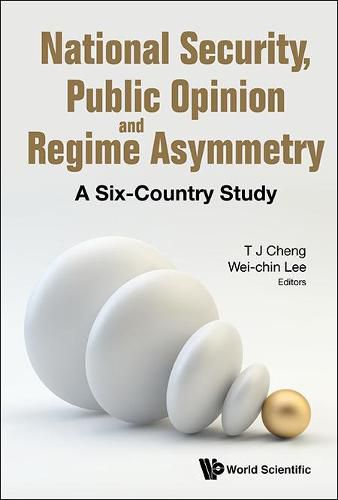Readings Newsletter
Become a Readings Member to make your shopping experience even easier.
Sign in or sign up for free!
You’re not far away from qualifying for FREE standard shipping within Australia
You’ve qualified for FREE standard shipping within Australia
The cart is loading…






New conventional wisdom posits that the public in democracies is inattentive but not really ignorant nor easily swayed, and indeed quite consistent and thoughtful when it comes to national security and foreign policy issues.This volume builds on such a claim to study the attributes and impacts of public opinion on foreign and national security policy in six democracies: Taiwan, South Korea, Israel, Ukraine, Finland and West Germany. These countries face acute and sustained national security challenges posed by stronger authoritarian regimes close by, namely China, North Korea, the Arab nations, Russia and the Soviet Union. Given potential existential threats to their democracies, the public is typically tuned in, and in sorting out their policy stands, is mindful that the fundamental values of identity, sovereignty and prosperity may be jeopardized. Public opinion can indeed constrain statecraft here in these democracies ensnared in asymmetric dyads.Many have studied public opinion and national security in democracies, but few have studied national security strategy of weak powers confronting great powers. This volume is the first attempt to examine this topic. The approach here is a comparative rather than country-specific study combining qualitative and quantitative research methods to enrich our understanding of the complexity and intrigues of the interplay between public opinion and national security under the condition of regime asymmetry. The wealth of data and careful examination of various issues from different theoretical approaches makes this volume an essential guide for courses and research in comparative foreign policy, international relations and democratic processes.
$9.00 standard shipping within Australia
FREE standard shipping within Australia for orders over $100.00
Express & International shipping calculated at checkout
New conventional wisdom posits that the public in democracies is inattentive but not really ignorant nor easily swayed, and indeed quite consistent and thoughtful when it comes to national security and foreign policy issues.This volume builds on such a claim to study the attributes and impacts of public opinion on foreign and national security policy in six democracies: Taiwan, South Korea, Israel, Ukraine, Finland and West Germany. These countries face acute and sustained national security challenges posed by stronger authoritarian regimes close by, namely China, North Korea, the Arab nations, Russia and the Soviet Union. Given potential existential threats to their democracies, the public is typically tuned in, and in sorting out their policy stands, is mindful that the fundamental values of identity, sovereignty and prosperity may be jeopardized. Public opinion can indeed constrain statecraft here in these democracies ensnared in asymmetric dyads.Many have studied public opinion and national security in democracies, but few have studied national security strategy of weak powers confronting great powers. This volume is the first attempt to examine this topic. The approach here is a comparative rather than country-specific study combining qualitative and quantitative research methods to enrich our understanding of the complexity and intrigues of the interplay between public opinion and national security under the condition of regime asymmetry. The wealth of data and careful examination of various issues from different theoretical approaches makes this volume an essential guide for courses and research in comparative foreign policy, international relations and democratic processes.